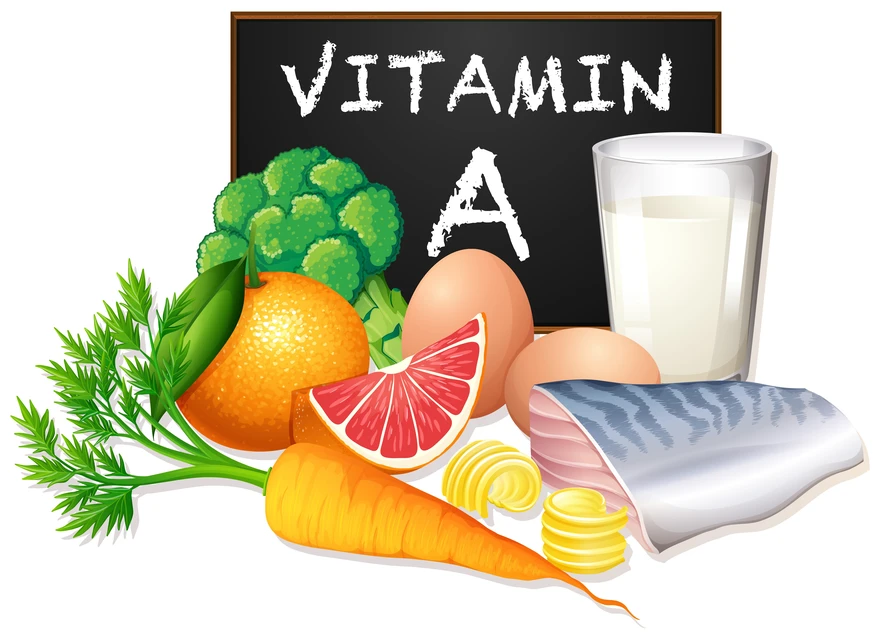Health Wellness
PCOS Diet for Effective Treatment - Foods to Include and Avoid
35931 Views
0

Polycystic ovary syndrome (PCOS) is one of the most common endocrine disorders faced by women today, mostly in reproductive age. While there is no cure for PCOS, research suggests that certain dietary and lifestyle changes can help you manage the condition better. If you have PCOS, your doctor may recommend a personalised PCOS diet plan to help prevent the symptoms and potential complications that may occur due to the condition's associated hormonal imbalances, insulin resistance, and inflammation.
Hustling at home and workplace? Ladies, do not ignore your health amidst these priorities! Book a comprehensive health check up here.
PCOS symptoms to watch out for
Many who suffer from this know what it is and what its symptoms are, but there are many who are not even aware that they suffer from it. So to begin with, let’s discuss what exactly it is. PCOS is considered a syndrome since it has various manifestations, including:
- Irregular periods, missed periods or very light periods
- Ovaries that are large or have many cysts.
- Excessive body hair, including the face, chest, stomach, and back (hirsutism)
- Weight gain, especially around the belly (abdomen)
- Pimples
- Hair loss
- Fertility issues
At large, infrequent or irregular menstrual periods remain the primary concern which brings women to the doctor’s office.
Ignoring it may lead to several other complications like diabetes, infertility, sleep apnea, depression, cancer, and heart-related problems. To reduce the risk, it’s always best to consult a gynaecologist and start treatment as soon as you become aware of the problem.
Foods to include in your diet
Women with PCOS need to follow a diet where their nutritional needs are met while maintaining a healthy weight. Here is a look at the most important points while planning your daily diet in PCOS:
A low glycemic index (GI) diet: Foods with low GI get digested slowly and blood sugar rises gradually and slowly, thus insulin levels rise at a much slower rate. The improvement in insulin levels seems to be beneficial for PCOS. Any unprocessed low carbohydrate food, whole grains, nuts, seeds, fruits, starchy vegetables, and legumes all come under this category.
An anti-inflammatory diet: A diet that reduces fatigue and inflammation-related symptoms is helpful too. Here consuming berries, leafy greens, and extra virgin oil is recommended by experts.
The DASH diet: Or what is known as the Dietary Approach to Stop Hypertension- also helps to manage PCOS. Foods that are high in saturated fat and sugar are a big NO. A Dash diet is rich in whole grains, seasonal fruits and vegetables, low-fat dairy products, fish, and poultry.
Basically, whatever harms your heart, increases weight, and dysregulates insulin levels are to be avoided. Instead, what should be included in your daily food are the following-
1. Natural unprocessed foods enable vitamin absorption, and healthy nutrient intake and lead to weight loss.
2. High-fibre foods like oats and millets can lower cholesterol and inflammation in the body as well as stabilise blood sugar levels.
3. Fish –salmon, tuna, sardines, and foods rich in vitamins can aid in improving insulin resistance and decrease the severity of symptoms associated with PCOS.
4. Leafy greens like spinach, kale, and mustard leaves which are low in the glycaemic index but rich in phytochemicals, vitamins, and antioxidants can be eaten raw as in salads or pureed and made into exotic dishes.
5. Coloured fruits– red grapes, blueberries, blackberries, cherries, papaya, melon, are all rich in antioxidants and fibre but low in glycemic index and as such can prove helpful for PCOS patients. They also satisfy the sweet cravings. But going on an only fruit diet or consuming only fruits is not recommended. It’s better to eat most fruits with their skin and avoid drinking juices as the latter don’t have fibres and usually increase the sugar level faster than when we eat them.
6. Vegetables- broccoli, cauliflower, avocados, green beans, and carrots which are a rich source of magnesium, help to boost immunity and prevent obesity so are good for people suffering from PCOS. At least try to eat 25 gms of such veggies daily.
7. Legumes- dried beans like rajma, lentils, moong, and split peas all work to lower inflammation and insulin levels so ladies should include them in their diet.
8. Healthy fats- olive oil, coconuts, and vegetable oils with low omega 6 fatty acids help to increase hormone production, and fat is a biological necessity that aids in vitamin absorption and improving brain and heart function.
9. Nuts – pine nuts, walnuts, almonds, and pistachios all have the right balance of mono-saturated fats to help balance female hormones and should be consumed in moderation.
10. Chocolate- dark ones in moderation work as antioxidants, and hence curtail the effects of PCOS.
11. Spices- turmeric, cinnamon, black pepper, ginger, cumin, and saffron have proven to be very effective in dealing with PCOS, and including them in your daily diet is very beneficial for anyone’s health. Include most of the above-mentioned food in your daily diet in different combinations- the result should be to maintain a stable weight with controlled insulin levels. Eat small meals but at regular intervals.
Foods to exclude from your diet
All said and done, it is also necessary to know what should be avoided – what should be excluded from your diet. For unless one does that it’s no use eating healthy and negating the whole effect by eating unhealthy food too. Certain food that should be avoided in dealing with PCOS are-
1. Bakery products made using saturated fats
2. Fried and fast food
3. Sugary beverages and ready to drink energy drinks
4. Processed meats
5. Unhealthy fats that raises cholesterol like trans-fat
6. Excess red meat A good-balanced diet plays a pivotal role in dealing with the consequences of PCOS, especially losing weight, and controlling inflammation and insulin levels. The right diet can heal and help in dealing with PCOS better! Make healthy choices in your daily eating.
























